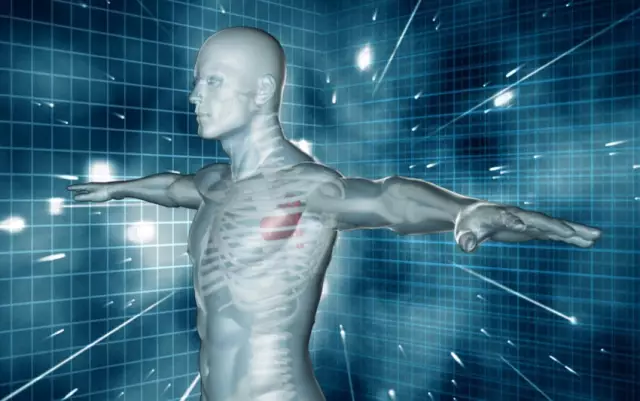- Author Rachel Wainwright wainwright@abchealthonline.com.
- Public 2023-12-15 07:39.
- Last modified 2025-11-02 20:14.
6 abilities of the body that we do not control
Scientists have been trying to uncover the secrets of the human body for centuries, but some questions still remain unanswered. Among the many abilities of the body, there are some that we are not able to control.
Doorway effect
This strange feeling is familiar to everyone: you move from one room to another with the intention of doing something familiar (take an object, watch a recording, open a website on the Internet, etc.), but on the way for some reason you forget why came. Remembering is surprisingly difficult: many options come to mind, none of which suits you. Sometimes the problem can be solved by returning to its original location. The memory seems to switch, and the elusive thought comes back.
People tend to attribute such situations to fatigue or memory loss, but this is not the case. In this case, a person is under the influence of a phenomenon that scientists call the "doorway effect." Research results have shown that when moving from one room to another, the brain produces a kind of reset of information. Likewise, any distraction can affect short-term memory: a phone call, a knock on the door, a sudden question on an abstract topic. Scientists have yet to figure out why such a property is needed.

Source: depositphotos.com
Redness of the face
The ability to blush from excitement or embarrassment has always been considered a feature of subtle natures, shy, truthful and naive. In fact, this is a purely physiological reaction that has nothing to do with the character or moral principles of a person.
With strong emotional stress, the body comes to a state of readiness for self-defense, in which it is helped by the release into the blood of an additional portion of the adrenal hormone - adrenaline. As a result, the muscles tighten, cardiac activity is activated, a sharp expansion of peripheral vessels occurs, which in people with a light skin tone manifests itself in a noticeable reddening of the face, neck, upper chest and even hands. So the ability to become covered with a "bashful blush" does not depend on personality traits, but on the amount of coloring pigment (melanin) in the skin.

Source: gialuron.com
Hypnagogic jerk
A hypnagogic jerk is a sensation of falling that many people experience in their sleep, which occurs with severe mental fatigue, when the moment you fall asleep, the brain shuts down before the body.
The opposite effect is also known: sometimes a person, waking up, cannot move. This is a very unpleasant, frightening feeling: it seems that you have lost the ability to control your muscles and are doomed to complete immobility.

Source: depositphotos.com
Inhalation through one nostril
The person does not control the breathing process through the nose. Usually, inhalation occurs only through one nostril (right or left), and every 4 hours the cycle changes involuntarily.
The biological meaning of this natural mechanism is still unclear, but, according to scientists, it may be associated with an alternating increase in the work of the cerebral hemispheres (inhalation through the right nostril activates the left hemisphere and vice versa).

Source: depositphotos.com
Dreaming
Quite a lot is known about when dreams appear. Much more questions are related to the content of dreams. There are more than a dozen hypotheses explaining this phenomenon, but none of them has reliable evidence. According to the most common, dreams are an unexpected combination of the impressions we received during the day, as well as the thoughts and feelings they caused. Only one thing is obvious: a person cannot influence either the theme of the next dream, or the development of its plot.

Source: depositphotos.com
Conversations in a dream
According to statistics, about 5% of adults have the ability to talk in their sleep. For most, this occurs during the transition from wakefulness to sleep or in the first hours after falling asleep, when the muscles of the face and throat are not yet completely relaxed and can provide sound reproduction.
The ability to speak in a dream is considered a normal variant. Men have it much more often than women. It is believed that in this way a person expresses emotions that he restrains during the day, and gets rid of the consequences of the stresses experienced the day before. If this happens infrequently and does not affect the quality of your night's rest, there is nothing to worry about. Daily conversations in a dream may indicate increased excitability and problems of the nervous system.

Source: depositphotos.com
The capabilities of the human body are not fully understood. Experts still have to answer many questions about why nature has endowed us with this or that ability. It is possible that the solution will allow developing methods of treating serious ailments or creating new technologies that will help improve the quality of life of people.
YouTube video related to the article:

Maria Kulkes Medical journalist About the author
Education: First Moscow State Medical University named after I. M. Sechenov, specialty "General Medicine".
Found a mistake in the text? Select it and press Ctrl + Enter.






